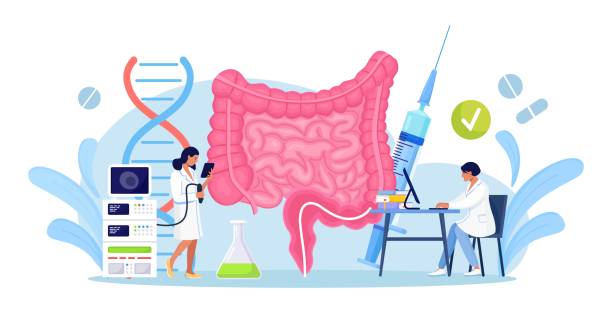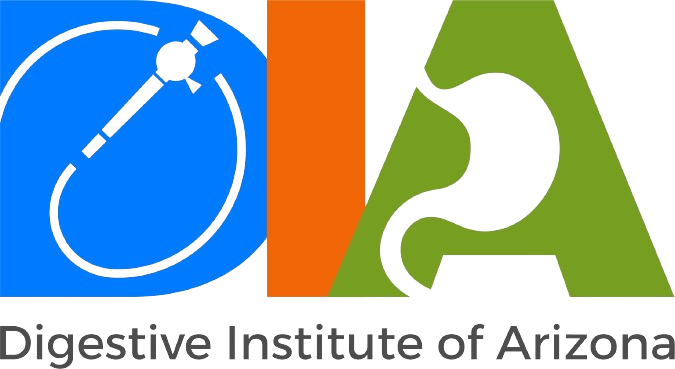
How I Knew I Had Colon Cancer: A Personal Journey and Warning Signs
October 24, 2025
Colon cancer can affect anyone. It does not matter if you are young or older, male or female, active or busy. Many people miss early signs because they seem minor at first. Learning what to watch for puts you in control of your health. Early detection saves lives, and routine screening is one of the strongest tools for prevention.
In the United States, major health agencies recommend starting colon cancer screening at age 45 for people at average risk. This change happened because research shows that colon cancer in younger adults has been increasing in recent years. Many people under 50 are being diagnosed with symptoms that were once uncommon in that age group.
Knowing the early warning signs helps you take action at the right time.
What Colon Cancer Is and How It Starts
Colon cancer begins when cells in the colon or rectum grow in a way that is not normal. Most cases begin as small growths called polyps. Many polyps are harmless at first. Over time, some can turn into cancer. This process usually takes years, which is why screening is effective. A colonoscopy can find and remove polyps before they become dangerous.
This is also why symptoms should never be ignored, even if they seem small. Some people feel nothing. Others notice changes that come and go. Every digestive system has its own pattern, so pay attention to signs that feel new for you.
Early Symptoms and Warning Signs to Watch For
Here are the most important symptoms linked to colon cancer. Each one can have harmless causes, but together or when persistent, they need medical attention.
1. Blood in stool
Blood in or on the stool is one of the most important warning signs. The blood might be bright red or very dark. Some people assume it is due to hemorrhoids, but research shows that rectal bleeding is one of the strongest early indicators in younger adults diagnosed with colon cancer. It should never be ignored.
2. Persistent change in bowel habits
Your bowel habits may shift temporarily from stress or food changes. The concern begins when a change lasts more than a few days. Watch for:
- New constipation
- New diarrhea
- A pattern that keeps switching
- Narrow or thin stools
- A feeling that the bowel does not empty fully
These changes happen because a growth in the colon can affect how stool moves.
3. Abdominal pain or discomfort
Ongoing cramping, pressure, or bloating can be easy to dismiss, especially if you have a busy routine. Pain that keeps returning or does not improve should be checked. Some tumors create a partial blockage in the colon, which leads to discomfort, gas buildup, or a change in stool shape.
4. Unexplained weight loss
Losing weight without trying is a concern. It happens when the body uses extra energy to fight disease, or when tumors affect digestion and nutrient absorption. Weight loss combined with appetite changes or weakness deserves evaluation.
5. Fatigue and low energy
Cancer can lead to fatigue because it often causes hidden bleeding into the digestive tract. Over time, this can result in anemia, which makes you feel tired or short of breath. If you feel unusually weak and cannot link it to stress, sleep, or routine changes, consider getting checked.
Why These Symptoms Are Often Missed
Many people do not think of colon cancer when digestive changes start. Symptoms can be small or easy to explain away.
- Bleeding is often blamed on hemorrhoids.
- Bloating can be blamed on food or stress.
- Irregular bowel habits are blamed on IBS.
- Busy schedules make it easy to postpone a checkup.
IBS rarely causes symptoms like bleeding, major weight loss, or progressive pain. These red flags should prompt testing. Research on early onset colon cancer also shows many younger patients experience diagnostic delays because neither they nor their providers suspect cancer early.
If something feels different for your body and it stays that way, trust that feeling.
Who Is at Higher Risk
Anyone can develop colon cancer, but certain factors increase risk.
1. Age
Risk increases with age, but cases in adults under 50 have risen sharply. This is why awareness matters for every adult.
2. Family history
If a parent, sibling, or child has had colon cancer, your risk is higher. You may need to start screening earlier, sometimes 10 years before the age at which your family member was diagnosed.
3. Genetic conditions
Some inherited syndromes raise the chances of colon cancer, including Lynch syndrome and familial adenomatous polyposis. Genetic counseling can help if you have multiple relatives with colon cancer.
4. Personal medical history
People with long term inflammation in the colon, such as Crohn’s disease or ulcerative colitis, have higher risk.
5. Lifestyle factors
Research links several preventable factors with higher colon cancer risk:
- Low fiber diet
- High intake of processed or red meat
- Obesity
- Low physical activity
- Smoking
- Heavy or frequent alcohol use
Making changes in these areas helps reduce risk.
6. Gut bacteria and early onset cancer
Emerging studies suggest certain bacteria and their toxins may play a role in some early onset colon cancers. Research continues in this area, but it highlights how complex the causes can be.
When You Should See a Doctor
You should see a clinician if any of these apply:
- Blood in stool, even once
- Bowel changes that last more than a few days
- New abdominal pain that does not go away
- Unexplained weight loss
- Ongoing fatigue that does not match your lifestyle
Bleeding and abdominal pain are two of the most important red flag symptoms identified in early onset colon cancer research.
If you are 45 or older and have not been screened, schedule screening. If you have family history, you may need screening sooner.
Digestive specialists such as those at Digestive Institute of Arizona can help evaluate symptoms and choose the right screening option.
Screening and Testing: What to Expect
Screening is the strongest tool for preventing colon cancer. It can detect polyps before they turn into cancer, and it can find cancer early when treatment works best.
Colonoscopy
Colonoscopy is the most complete test. A specialist uses a small camera to look at the entire colon. Polyps can be removed during the same procedure. This prevents cancer before it forms. Most average risk adults repeat colonoscopy every 10 years if results are normal.
Stool based tests
If you prefer a noninvasive option, there are stool tests such as:
- FIT test
- Stool DNA test (for example Cologuard)
These tests look for blood or DNA signals linked to cancer. If a stool test is positive, a colonoscopy is needed to confirm. FIT tests are usually done every year. Stool DNA tests are generally done every 3 years.
Why screening works
Screening reduces colon cancer deaths because it removes precancerous polyps and identifies problems early. Research strongly supports its benefits.
How You Can Lower Your Risk
You cannot control every risk factor, but several changes help protect your colon health and overall health.
- Eat more fiber from vegetables, fruits, beans, and whole grains.
- Reduce red and processed meats.
- Stay active and aim for regular exercise.
- Maintain a healthy weight.
- Avoid smoking.
- Limit alcohol.
- Learn your family history. Share this with your clinician.
These steps support long term health and have been linked to lower colon cancer risk.
Simple Self Check List
Ask yourself these questions:
- Have I seen blood in my stool
- Have I had new bowel changes for more than a few days
- Have I lost weight without trying
- Do I feel tired or weak for no clear reason
- Am I overdue for colon cancer screening
If any answer is yes, schedule an evaluation. It is better to check early and feel reassured than to wait and miss something important.
Conclusion
Colon cancer can grow quietly for years. Many early signs are subtle and easy to overlook, but paying attention to changes can protect your health. Routine screening starting at age 45 helps find polyps before they become cancer. If you notice bleeding, persistent bowel changes, unexplained weight loss, or new abdominal pain, speak with a healthcare provider. The team at Digestive Institute of Arizona can help you understand your options and guide you through screening if needed. Taking action early makes a real difference.
FAQ
What are the earliest symptoms of colon cancer
The earliest symptoms often include blood in stool, changes in bowel habits, abdominal pain, weight loss, and fatigue.
At what age should I start screening
Most adults should start screening at age 45. People with family history may need earlier testing.
Is blood in stool always a sign of cancer
No, but it is a red flag. Studies show rectal bleeding is one of the most important symptoms to check promptly.
Can colon cancer affect young adults
Yes. Cases in adults under 50 have been rising across the United States.
Can lifestyle changes reduce my risk
Yes. Eating more fiber, staying active, avoiding smoking, and limiting alcohol all help lower risk.
